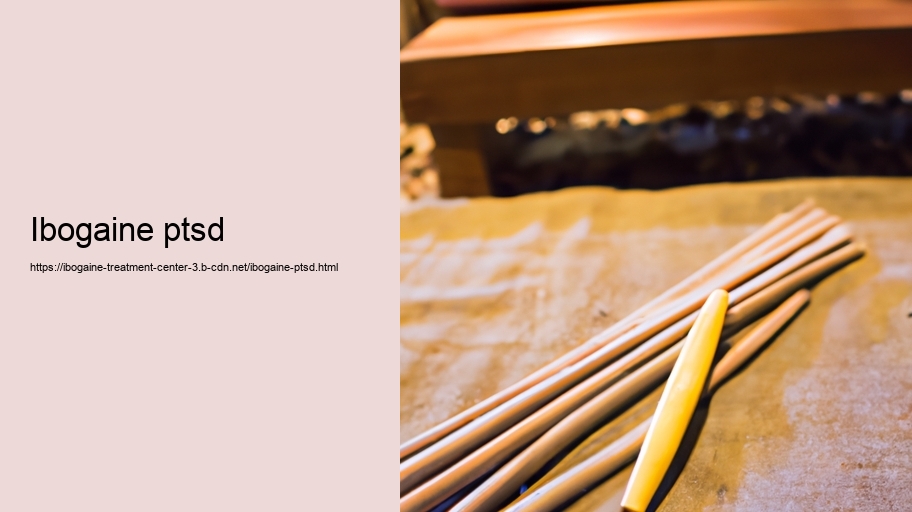Ibogaine and PTSD: Exploring the Potential of an Unconventional Treatment
In recent years, there has been a growing interest in alternative therapies for post-traumatic stress disorder (PTSD), a condition that affects millions of individuals worldwide. Traditional treatment methods, such as psychotherapy and pharmacotherapy, do not always provide relief for all sufferers, leaving many to struggle with persistent symptoms. This has led to exploration into unconventional approaches, one of which is the use of ibogaine – a naturally occurring psychoactive substance derived from the roots of the African shrub Tabernanthe iboga.
Ibogaine is traditionally used in spiritual ceremonies by indigenous peoples in West Africa and has gained attention due to its unique effects on the brain. It acts on several neurotransmitter systems simultaneously and is particularly known for its potential in treating addiction. However, its application in managing PTSD symptoms warrants further discussion due to both promising outcomes and significant concerns related to safety and legality.
The Potential Therapeutic Role of Ibogaine in Treating PTSD
PTSD arises after exposure to traumatic events such as warfare, physical assault, or natural disasters. The condition manifests through intrusive memories, avoidance behaviors, negative changes in thoughts and mood, and alterations in arousal and reactivity. Ibogaine's complex pharmacological profile suggests it may address these symptoms by promoting neuroplasticity – essentially rewiring brain circuits affected by traumatic memories.
Research indicates that ibogaine modulates neurotransmitter pathways associated with mood regulation and stress response. Its action on the serotonin system could potentially alleviate depressive symptoms often accompanying PTSD. Additionally, ibogaine’s capacity to reduce opioid cravings by resetting opiate receptor sites hints at broader implications for interrupting pathological patterns—including those embedded by trauma.
Anecdotal evidence from individuals who have undergone ibogaine treatments for addiction report profound psychological insights during their experiences. Some recount revisiting traumatic events but from a detached perspective that enables processing without overwhelming emotion—a facet that could be invaluable for those with PTSD who are often tormented by reliving their traumas.
Safety Concerns and Legal Challenges
Despite these intriguing possibilities, significant challenges impede widespread acceptance of ibogaine as a legitimate therapy for PTSD or any other condition. One primary concern is safety; ibogaine administration can lead to severe cardiovascular complications among other risks, necessitating careful screening and medical supervision during treatment.
Moreover, legal barriers present substantial hurdles—ibogaine remains classified as a Schedule I substance under United States federal law due to its hallucinogenic properties; it's illegal without special dispensation or licensing which is rarely granted. This categorization severely limits clinical research opportunities within countries holding similar legislation.
Global Perspectives on Ibogaine Treatment
Outside the US where regulations may be less restrictive—in countries like Mexico or Canada—ibogaine clinics operate legally offering hope to those seeking alternative therapies when conventional treatments fail them. Yet even within these jurisdictions programs vary widely regarding quality control standards making patient experiences inconsistent at best sometimes perilous at worst.
Ethical Considerations
The ethical implications surrounding self-experimentation with substances like ibogaine cannot be overlooked either particularly when considering vulnerable populations dealing with complex mental health conditions such as PTSD who may seek out desperate measures hoping for relief from their suffering Often lacking comprehensive understanding about potential risks involved such individuals might unwittingly place themselves greater jeopardy than if they had adhered traditional therapeutic modalities despite perceived ineffectiveness thereof.
Conclusion
Exploration into using ibogaine treat PTSD intriguing yet fraught complexity Given current constraints around legality safety concerns it remains largely fringe element world psychiatry Nevertheless stories personal transformation attributed this substance serve remind us our continual quest better understand heal human mind must remain open diverse array therapeutic options while concurrently upholding rigorous scientific scrutiny ensure we do more good than harm pursuit wellness ultimately requires balance innovation caution empathy understanding those whom seek help their deepest struggles
